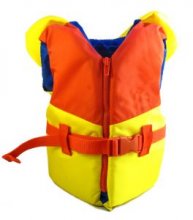
Not all UK savings are UK-regulated
Most banks, including foreign-owned ones such as Spain's Santander, are UK-regulated. Yet a few EU-owned banks opt for a 'passport scheme' where you rely on protection primarily from their HOME government.
This includes Fidor, RCI Bank and more. See the list for full details.
The amount's double in joint accounts
Cash in joint accounts counts as half each, so together you've 150, 000 protection.
If you've an individual account with the same bank, half the joint savings count for your total exposure, and any amount over 75, 000 isn't protected. For more info, see the below.
An institution is NOT the same as a bank
The protection's per institution, not account. So four accounts with one bank still only get 75, 000. The definition of 'institution' depends on a bank's licence and giant banking conglomerates make it complex.
For example, sister banks Halifax and Bank of Scotland's accounts are only covered up to 75, 000 combined. RBS and NatWest are also sisters, but their 75, 000 limits are SEPARATE. See the tool below.
Spread savings to keep 'em safe
For perfect safety, save no more than 73, 000 per institution (the extra 2, 000 gives room for interest). Spreading can be worth it even if you've under 75, 000; if your bank went bust, the money could be inaccessible for a spell. Using two accounts mitigates the risk.
What does the FSCS cover?
The Financial Services Compensation Scheme (FSCS) only applies to organisations regulated by the Financial Conduct Authority (FCA). This was the big problem with failed Christmas savings scheme Farepak, as it had no protection whatsoever. When it went bust, the money was gone.
 The main categories of protected savings are:
The main categories of protected savings are:
- Bank and building society accounts
All UK credit unions, bank or building society savings accounts, current accounts and small business accounts (read full details) are covered to some degree by the FSCS.
Certain types of guaranteed equity bonds, 'deposit accounts' where the interest paid depends on the stock market's performance, may also count for 'savings' protection.
- Any cash saved within a SIPP pension
If you have a self invested personal pension and are keeping some of the money in cash savings there (as opposed to investment funds), then you get the full FSCS savings protection on that, separate to any investment protection (read full details).
SIPP providers will tell you which banks are holding your cash, so you can check if it's linked to any others you have savings with (see table below).
- Any cash ISA (including Help to Buy ISAs)
These are simply tax-free savings accounts, so they have the same FSCS protection as any other savings accounts. This includes the cash ISA's forerunner, the Tessa-Only ISA (Toisa). Plus the ISA money will retain its tax-free status if the institution it's held in goes bust.
Am I protected if my investment company goes bust?
This guide's primarily about 'saving'. If you put money in stocks and shares, funds, or a pension, then that's a 'risk-based investment', NOT savings. A totally different FSCS protection applies...
Investor protection is about providers going bust, not you losing money
The FSCS investment protection applies if you lose money due to the product provider of the investment going bust - for example, if you've got a stocks & shares ISA with a bank, and the bank goes bust - and not if the underlying investment goes bust.
In other words, if you've got shares in a company and it goes kaput, or you've bought a fund and it performs poorly, then you've no protection as that's the nature of investing.
Yet in many cases if you're buying shares or funds through a company - eg, some stockbrokers just sell you shares - the fact the stockbroker went bust wouldn't actually matter. You'd still own the shares, so there'd be no compensation.
Investment protection varies with each product's structure. Always check. Many limits changed on 1 January 2010, so if the company went bust before then different limits may apply.
- Investment funds
- Pensions and life insurance
Stakeholder pensions and money paid into life assurance products usually fall under the category of 'long-term insurance', meaning 90% of what's in them is protected. This is the same even if your stakeholder pension is held in 'cash funds'.
 Self-invested personal pensions (SIPPs)
Self-invested personal pensions (SIPPs)
A SIPP is a completely DIY pension which gives you complete control of your pension pot, for better or worse! The protection your cash gets depends on how you decide to use it. But importantly, in general the cash is ringfenced from the SIPP provider, meaning if IT goes bust, your money is safe.
If you choose to invest in stock market funds or other investment vehicles, 100% of the first 50, 000 is covered.
Am I protected if my insurance company goes bust?
If you take out home, car, travel, life or even PPI loan insurance, and the provider goes into default, then the Financial Services Compensation Scheme kicks in.
There are two main ways in which it protects you.
- If you need to claim from a bust insurer
The FSCS's main objective is to 'maintain continuity'. This means if your insurer goes bust, it will try to find another provider to take over your policy, or issue a substitute policy. However, if you have any ongoing claims, or need to make a claim before a new insurer is found, the FSCS should ensure these are covered.
- If it goes bust and you paid upfront
If you've paid for cover for a year, but the company goes bust after a month or two, then you would lose out.
To protect against that, if the FSCS can't transfer your policy to another provider, you'll be given a period of time to take out alternative insurance, and any money you've already paid will be refunded as compensation via the FSCS. To help explain, here's a quick example...
You paid for a year-long policy in January and the insurer went bust in September. If the FSCS can't get the policy transferred elsewhere, then you will receive four months' compensation of the original cost.The limits of the compensation depend on whether the policy is compulsory or not.
Compensation for policies like third party car insurance, which you are required by law to have, are unlimited, so you get 100% of the premium back. Non-compulsory policies (eg, home, travel, life and PPI) have cover for 90% of the money paid.
What's not covered - saving stamps, clubs, loyalty points and more
If you've a savings scheme for a hamper or Christmas club, got money in PayPal, funds stored with a cashback site or points in a loyalty card scheme, then you may be protected by an industry scheme, but you won't have FSCS protection.
Also, if you're ordering or buying goods where you don't receive them immediately, such as a kitchen, flights or a computer, then those purchases aren't covered either. There is a way to protect yourself for free, though - see the Is My Spending Safe? guide.
Get Martin's Free Money Tips Email!
For all the latest deals, guides and loopholes - join the 10m who get it. Don't miss out
How does the protection work?
All UK-regulated deposits - including money saved and accumulated interest - in bank or building society savings products, are covered by the FSCS.
This is an independent fund set up by UK financial bodies and regulated by the FCA, which promises that, in the event of a bank collapsing, you get some of your money back, though it's likely you'll lose access to the cash while compensation is being dished out.








